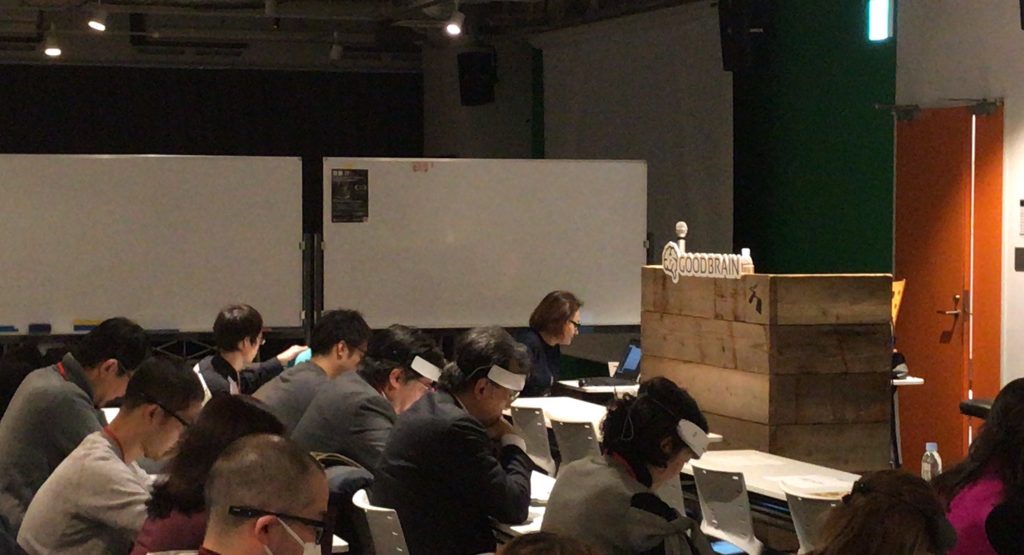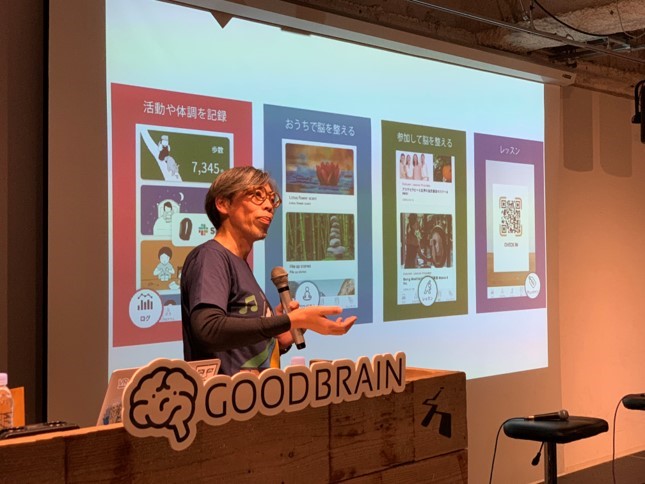The following is a project report by Dr. Naotaka Fujii, a neuroscientist, doctor, and the CEO of Hacosco Inc. , who conducted the joint-research Brain Music Project in conjunction with the Rakuten People & Culture Lab, Spotify, and JINS. By learning about how the brain functions, something we don’t often think about, we can take this opportunity to effectively use music as a means of reconsidering how we work.
The Brain Music Project
The Brain Music Project set out to clarify the relationship between music and human performance with the aim of understanding the mechanism at work through the brain activity that takes place during such times. A kick-off event was held in December 2019 in cooperation with the Rakuten People & Culture Lab, Spotify, and JINS, which was followed by six months of experiments and analysis.
Music and the brain
Music’s potential to affect human performance is widely known through such cases as the Mozart effect. The relationship, however, between this effect and brain function has yet to be made fully clear. The Mozart sonata KV 448, known for the Mozart effect, is a relatively fast-paced piece of music but, in reality, it has also been shown that any music with a similarly fast tempo, not just that of Mozart’s, can bring about the same effect. Many people habitually listen to music daily while they work or study. If music were to negatively affect our behavior, listening to it while we worked or studied would result in a decline in performance, so there would be no reason to make a habit of it. Furthermore, there are countless examples of top athletes boosting their performance by listening to the same music prior to competing, enabling them to enhance their concentration. These facts would suggest that there is a certain unconscious effect that music can exert on human performance. Therefore, through these experiments, we quantitatively measured the changes in performance brought about by music and brain activity during such times to clarify the unconscious effects that music has and the brain function that supports this process.
The impact of music
In this study, we recorded and analyzed the effects of music (click here for the playlist we used) on a computational task and the associated brain activity. Thirty-one subjects were asked to perform the computations while their brain activity in the frontal lobe was recorded using NIRS. The task employed the standardized serial arithmetic Kraepelin test. Two conditions were set for the experiment: one in which subjects listened to music during the break before taking the test, and the other in which subjects did not listen to music, after which the amount of work, the number of incorrect answers, and changes in brain activity during performance of the task were analyzed.

As a result, a comparison of the workloads of the subjects who listened to music prior to the task with those who did not listen to music revealed that calculation performance in the latter-half phase of the task improved among the subjects who listened to music. Similar changes were not observed among the subjects who did not listen to music beforehand. Additionally, comparing the brain activity of the two groups showed that the task-related increase in cerebral blood flow in the left frontal lobe of the subjects who had listened to music was significantly lower than in the subjects that had not listened to music. The results of this experiment suggest that listening to music improves the performance of cognitive tasks, suppressing the increase in cerebral blood flow required to perform the task. In other words, it could be deduced that the amount of energy consumed in the brain by the task was minimal, an indication that the left frontal lobe was used efficiently.
The potential of music
This study suggests a positive relationship between music and human performance in terms of using the brain efficiently. Confronting our own brains by using a tool that enables us to visualize brain activity, as we did through Brain Music, could lead to new possibilities as an indicator for developing our latent abilities. Although the experiment results were based on fewer subjects than we had originally intended due to the coronavirus, we hope to clarify the relationship between music and humans through additional comparative experiments under various conditions in the future.
Naotaka Fujii
Neuroscientist, physician
CEO, Hacosco, Inc.
Representative director, XR Consortium
Professor, Digital Hollywood University
Specially appointed professor, Tohoku University School of Medicine

